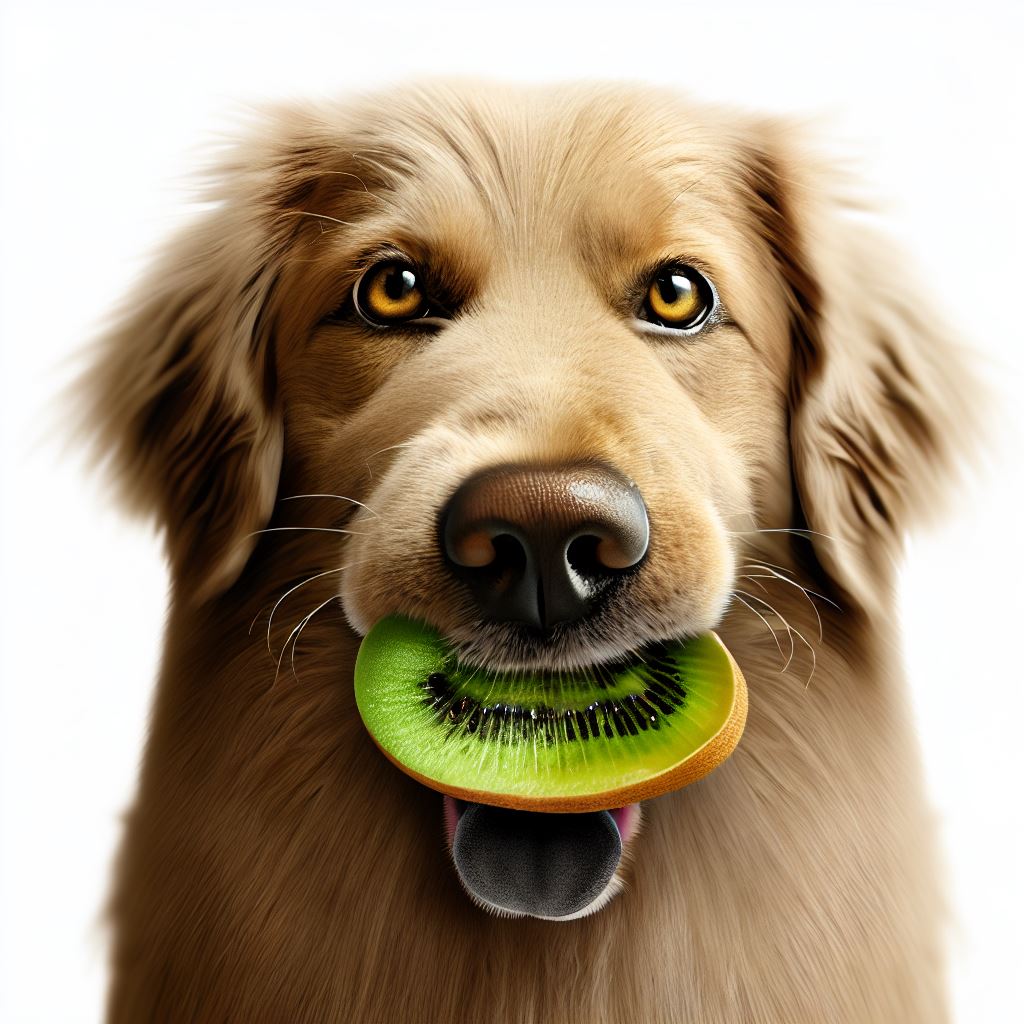Kiwi is a vibrant and nutritious fruit, known for its rich content of vitamins and minerals. It’s considered one of the healthiest fruits, containing an abundance of vitamin C and potassium. But when it comes to sharing this tropical treat with our canine companions, there are important considerations to keep in mind. In this comprehensive guide, we’ll explore whether dogs can safely eat kiwi, its benefits, potential risks, and how to offer it to your furry friend.
Table Of Contents
- Can Dogs Eat Kiwi?
- The Benefits of Kiwi for Dogs
- Potential Risks of Feeding Kiwi to Dogs
- Dos and Don’ts: How to Safely Share Kiwi with Your Dog
- Final Thoughts
Can Dogs Eat Kiwi?
Kiwi is generally safe for dogs to consume, but there are crucial factors to consider. While it’s not a regular part of a dog’s diet, it can be an occasional treat. Let’s delve deeper into the world of dogs and kiwi.
The Benefits of Kiwi for Dogs
Kiwi offers several nutritional benefits, making it a healthy choice for dogs when given in moderation. Here are some of its advantages:
- Rich in Vitamin C: Kiwi contains more vitamin C than an orange, contributing to your dog’s overall health.
- Potassium: This fruit is an excellent source of potassium, which is essential for maintaining proper muscle and nerve function.
- Vitamin K and E: Kiwi also provides vitamins K and E, supporting various bodily functions.
While these nutrients are beneficial, dogs have different dietary requirements compared to humans. It’s important to moderate the amount of kiwi you offer your dog due to the natural sugars and potential fiber-related issues.
Potential Risks of Feeding Kiwi to Dogs
Before serving kiwi to your dog, it’s essential to be aware of the potential risks involved:
- High Sugar Content: Kiwi contains natural sugars, which, when consumed in excess, can lead to weight gain and spikes in blood sugar.
- Fiber Concerns: The skin of kiwi contains insoluble fiber, which may be challenging for your dog to digest and could lead to stomach upset or diarrhea.
- Kiwi Seeds: Kiwi seeds, when consumed in large quantities, contain amygdalin, which releases cyanide into the body. While a few seeds may not harm your dog, it’s best to remove them to prevent potential issues.
- Allergic Reactions: As with any new food, watch for signs of allergic reactions when introducing kiwi to your dog, such as coughing, sneezing, or itching.
Dos and Don’ts: How to Safely Share Kiwi with Your Dog
To ensure your dog enjoys kiwi safely, follow these guidelines:
- Preparation: Always peel the kiwi, remove the seeds, and cut it into small, manageable pieces to prevent choking hazards and digestive issues.
- Moderation: Offer kiwi to your dog as an occasional treat, keeping the portions small to avoid excessive sugar intake.
- Taste Preferences: Some dogs may not enjoy the taste of kiwi. Respect your dog’s preferences, and if they reject it, don’t force them to eat it.
- Kiwi Peel: While the skin is edible, it may irritate some dogs’ mouths. Be cautious when allowing your dog to consume kiwi peel.
- Choking Hazard: Never feed your dog a whole kiwi, as it can pose a choking hazard, particularly for smaller dogs.
- Kiwi Seeds: While a few kiwi seeds may not harm your dog, it’s best to remove them to prevent potential cyanide-related issues.
- Allergic Reactions: Monitor your dog for allergic reactions when trying kiwi for the first time. Seek veterinary advice if any adverse reactions occur.
Final Thoughts
In conclusion, kiwi can be a safe and nutritious addition to your dog’s diet when offered in moderation and prepared correctly. While it provides valuable nutrients, it’s essential to be mindful of the potential risks associated with excess consumption. Always consult with your veterinarian if you have any concerns about your dog’s dietary choices to ensure their well-being and health. Kiwi can be a delightful treat for your canine companion, provided it’s shared responsibly.
Reference Links:

Leave a Reply